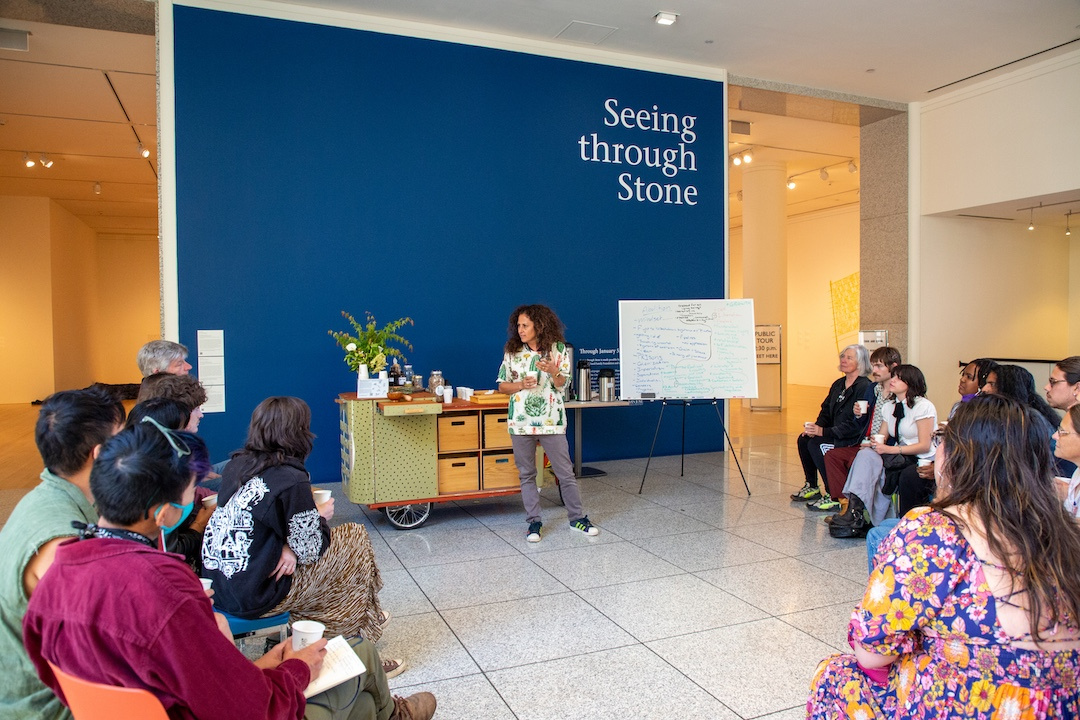
jackie sumell leads the first installment of Abolitionist’s Tea Party at SJMA, April 27, 2024. Photo by Frederick Liang.
The Abolitionist’s Tea Party asks, “How does the natural world endorse abolition as a strategy for liberation?” For this second installment, join tam welch and Kellee Matsushita-Tseng, co-founders of Bitter Cotyledons, for a community conversation and art-marking practice exploring how our experiences and relationships with our plant friends can offer guidance for incorporating abolition in daily life.
As artist jackie sumell writes, abolition “asks us to imagine what else we can build, grow, create, and offer. Abolition is built through relationships. Abolition is relationships.” In this workshop, participants will work together to imagine models of community care that allows abolition to happen in the here and now. Attendees will walk through how our most powerful sense, smell, can act as a tool in bringing visions of abolition to life. From this exploration, they will also create their own plant offering, an incense, using hand-grown and ground plants. Participants will have the opportunity to bring their incense home, as a reminder of how abolition can become a daily practice.
This workshop is open to all; queer and trans aapi are encouraged to attend. Please note that this event is not recommended for those with scent sensitivities.
Seating is limited; registering in advance is recommended. Advance registration includes admission to the Museum.
This program is presented in conjunction with Seeing through Stone, a multi-sited exhibition that is part of Visualizing Abolition.
About Bitter Cotyledons
Bitter Cotyledons is a queer and trans Asian American Pacific Islander garden collective in Santa Cruz that explores growing Asian vegetables and herbs, community care, and ancestral wisdom as strategies for survival and resilience in the face of white supremacy. Kellee Matsushita-Tseng is a Japanese farmer without land and in love with seeds, soil and shibari. tam welch is a queer Korean American adoptee and community organizer, in love with friends, flowers and frolicking.